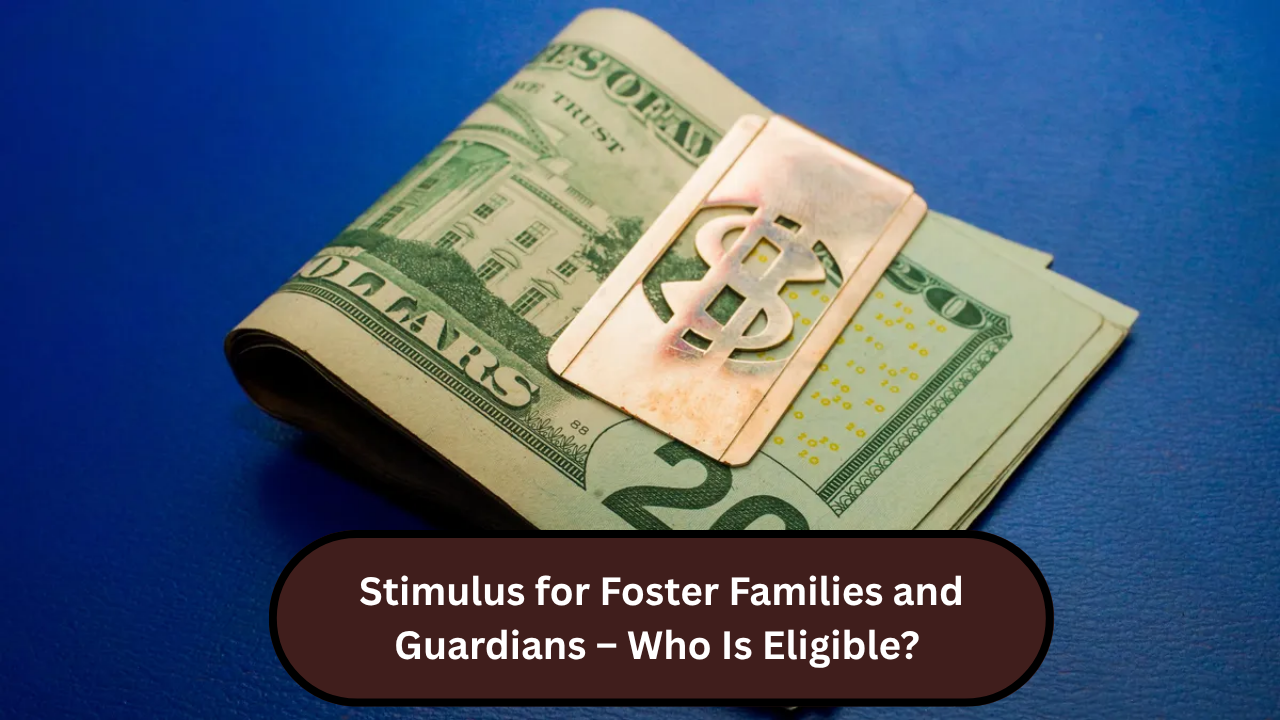In recent years, stimulus payments and government relief programs have played a big role in helping families during financial hardships—especially during times like the COVID-19 pandemic. But while many parents and taxpayers received support directly, questions often came up about foster families and legal guardians. Do they qualify for stimulus payments or child tax credits? What about temporary caregivers or grandparents raising children?
This article explains who is eligible for government stimulus payments and financial support when caring for a child, especially in cases where the child is not a biological child but is under foster care, kinship care, or guardianship. If you’re a foster parent, a grandparent caregiver, or a legal guardian, this guide can help you understand your rights and benefits.
Understanding Stimulus Eligibility for Foster Parents
Foster parents play a crucial role in raising children who cannot live with their biological families. In the eyes of the government, foster parents are eligible for certain benefits if the child lives with them for more than half of the year and the foster parent provides the main financial support. This means that foster families may have been eligible for previous stimulus checks, especially during the pandemic, as well as Child Tax Credit (CTC) and other related support. The IRS allows foster parents to claim a child as a dependent under certain conditions, even if they are not the biological parent. However, the child must be placed through a government-approved foster care system, and the foster parent must meet income and residency requirements.
For example, a foster parent who had a child in their care for most of the year may have been able to receive a stimulus payment of $1,400 for that child during the 2021 round of stimulus checks, in addition to increased child tax credits.
Support for Legal Guardians and Kinship Caregivers
Legal guardians—such as grandparents, aunts, uncles, or family friends who have full-time responsibility for a child—can also qualify for financial support and stimulus payments. In most cases, if the child is living with you and you are financially responsible for them, you can claim them as a dependent on your tax return. This also applies to “kinship caregivers,” who informally care for a relative’s child without going through formal foster care but provide full-time support. These caregivers may qualify for tax benefits like the Earned Income Tax Credit (EITC) or Child Tax Credit, depending on income level and the child’s residency status.
However, if another parent or guardian already claimed the child on their tax return, the IRS will not allow more than one person to claim the same dependent. So, it’s important to coordinate with biological parents or other caregivers if the child moved between households during the year. Also, eligibility may change year by year based on your custody or guardianship situation. If the child entered your care mid-year, check whether you meet the requirement of caring for them for more than six months.
Foster families, guardians, and kinship caregivers are often the unsung heroes of child care, stepping in during tough times to give children love and stability. The good news is that the U.S. government recognizes this and often offers stimulus payments, tax credits, and other financial support to those who qualify. If you’ve taken responsibility for a child, especially during challenging times, it’s worth checking your eligibility for past or future benefits. Speaking with a tax advisor or checking with the IRS website can help ensure you’re getting the help you deserve for the care you provide.
FAQ’s:
Q1. Can foster parents receive stimulus payments for children in their care?
A1. Yes, if the child lived with the foster parent for more than half the year and was placed through a qualified agency, they may qualify as a dependent for stimulus and tax credits.
Q2. Can grandparents raising grandchildren get stimulus checks or tax credits?
A2. Yes, if the grandparent is the primary caregiver and the child meets IRS rules for dependency, they may claim the child and receive financial benefits.
Q3. What if a child moves between homes during the year?
A3. Only one person can claim a child per year. The IRS usually allows the person who had the child for over six months of the year to claim them.
Q4. Are kinship caregivers eligible even if the arrangement is informal?
A4. Possibly. If the caregiver supports the child full-time and meets IRS dependency rules, they can claim benefits—even without formal custody in some cases.
Q5. Do these benefits apply every year?
A5. Eligibility may change each year depending on who cared for the child, for how long, and the caregiver’s income level. It’s important to review yearly tax rules or consult a tax professional.
